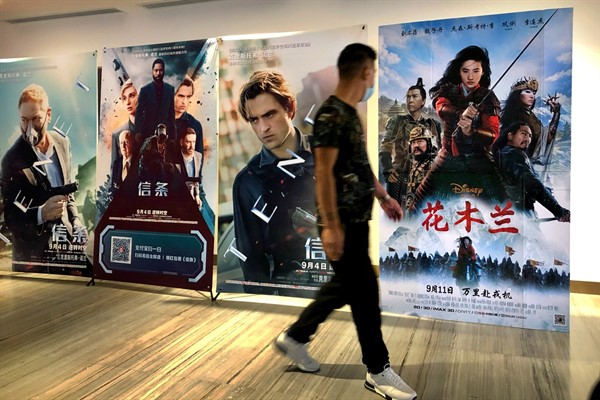The first stirrings of controversy emerged for Disney’s live-action remake of “Mulan” more than a year ago, when the film’s lead actress, Liu Yifei, shared a post on the Chinese social media app Weibo that praised the Hong Kong police. The territory’s massive pro-democracy protests were in full swing at the time, and opposition to the security forces’ brutal tactics had become one of the demonstrators’ central organizing principles. Liu’s post quickly went viral, and the hashtag #BoycottMulan trended in response.
Disney was not the only business to draw criticism over the Hong Kong protest movement. Last fall brought boycotts and PR trouble for the NBA, which pressured Houston Rockets general manager Daryl Morey into apologizing for a tweet supporting the Hong Kong protesters; for the gaming company Blizzard Entertainment, which booted a player from one of its competitions for reciting a pro-Hong Kong slogan during an event; and for Nike, which pulled a line of sneakers from Chinese stores after the shoes’ designer drew criticism in China for social media posts supporting the protesters.
As these corporate controversies unfolded, Disney’s then-CEO, Bob Iger, refrained from saying anything about Hong Kong. When asked about tension between American multinationals and China at a public forum last October, he said that “caution is imperative,” because of how “complicated” it was. He would speak out on other issues, he claimed, when the company’s business interests were served by doing so. Iger mentioned how he called out President Donald Trump’s decision to withdraw the U.S. from the Paris Agreement on climate change. “If people can’t breathe the air, they’re not going to theme parks.”

